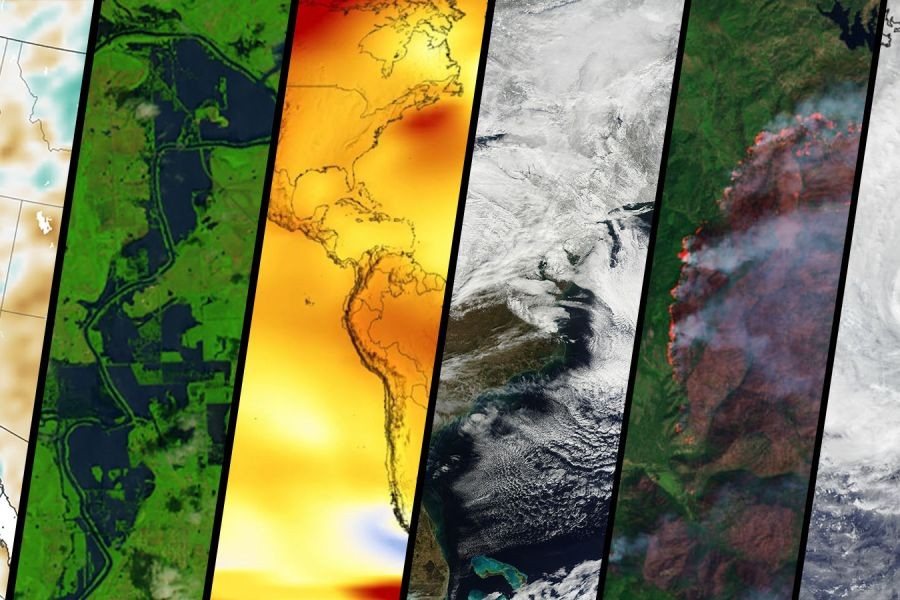New Zealand has long been a leader in environmental policy, driven by its unique geographic conditions and a deeply ingrained cultural respect for nature. This small but mighty nation has not only shaped its domestic landscape with progressive policies but has also influenced global environmental standards. For strategic business consultants in New Zealand, understanding these policies and their implications on both local and global scales is paramount. This article delves into the top five global environmental policies shaped by New Zealand, providing insights into their development, impact, and future trends.
Small Nation, Big Footprint
New Zealand is often seen as a green paradise, but beyond the postcard landscapes lies a more profound truth: Aotearoa has consistently played an outsized role in shaping international environmental policy.
From climate change advocacy to marine protection and indigenous rights in conservation, New Zealand’s unique approach is influencing global conversations—despite its modest size.
This article explores the Top 5 global environmental policies and movements that New Zealand has helped shape, and why the world is increasingly looking to Kiwi leadership in the age of climate crisis.
1. Leading the Charge on Climate Risk Disclosure
In 2021, New Zealand became the first country in the world to pass legislation requiring large financial institutions to report on climate-related risks.
Key points:
Applies to banks, insurers, and investment firms with more than $1 billion in assets.
Aligns with global Task Force on Climate-related Financial Disclosures (TCFD) standards.
Mandatory reporting began in 2023.
Global Impact:
New Zealand’s policy became a blueprint for similar legislation in Canada, the UK, and the EU. It marked a shift in how governments treat climate change—not just as an environmental issue, but as a financial risk.
Why it matters:
By forcing businesses to measure and disclose climate exposure, NZ helped redefine ESG (Environmental, Social, Governance) standards for global investors.
2. Pioneering Indigenous-Led Conservation
Aotearoa is one of the few countries where indigenous knowledge and rights are embedded in environmental law.
Notable milestones:
The Whanganui River was granted legal personhood in 2017.
Te Urewera (former national park) was similarly recognised as a living entity.
Co-governance models place Māori leadership at the heart of resource management.
Global Recognition:
The UN, academic institutions, and environmental NGOs cite New Zealand as a model for decolonising conservation. Countries like Canada, Australia, and Colombia are adapting this approach in their own indigenous frameworks.
Why it matters:
This policy shift respects indigenous rights while delivering better environmental outcomes rooted in kaitiakitanga—the Māori principle of guardianship.
3. Establishing the World’s Largest Marine Sanctuaries
New Zealand has been instrumental in championing large-scale marine protection, particularly in the South Pacific.
Key initiatives:
The Kermadec Ocean Sanctuary (proposed in 2015) would protect 620,000 km²—one of the largest such zones globally.
NZ led efforts to form the South Pacific Regional Fisheries Management Organisation (SPRFMO).
Policy Legacy:
Although political hurdles have delayed Kermadec’s full implementation, NZ’s advocacy has influenced similar sanctuaries in:
Pitcairn Islands (UK)
Cook Islands (Marae Moana)
Chagos Archipelago (Indian Ocean)
Why it matters:
As a Pacific leader, NZ promotes science-based, precautionary approaches to marine biodiversity, setting a global standard for ocean governance.
4. Zero Carbon Act: A Model for Net Zero Commitments
New Zealand’s Climate Change Response (Zero Carbon) Amendment Act 2019 is a globally recognised legal framework setting binding climate targets.
Key features:
Net-zero carbon emissions by 2050 (excluding short-lived gases like methane).
Independent Climate Change Commission to advise and monitor.
Five-year carbon budgets, similar to UK’s model but tailored to NZ’s economy.
Global Influence:
The act has been cited in climate policy circles as a balanced template—ambitious but pragmatic, especially in its handling of agricultural emissions.
Countries inspired by NZ’s approach:
Ireland, for its methane strategy.
Chile, for legal structures aligning with Paris goals.
Fiji, which adapted elements for its regional climate planning.
Why it matters:
It proves that small nations with high agricultural exposure can still commit meaningfully to climate targets—with global ripple effects.
5. Exporting Clean Energy Policy through Green Hydrogen
Though small, New Zealand’s 100% renewable electricity target has made it a proving ground for future-focused energy models.
Emerging leadership:
NZ is investing in green hydrogen as an exportable clean energy.
Partnerships with Japan and South Korea aim to create a hydrogen export corridor.
Meridian Energy and Contact Energy are piloting major hydrogen projects using hydro and wind.
Global Signal:
Countries looking to diversify from fossil fuels view NZ as a "laboratory nation" for scalable hydrogen systems.
Why it matters:
If successful, NZ could become Asia-Pacific’s green energy exporter, influencing how countries transition away from coal and LNG.
🎯 Avoiding the Mistakes Others Already Made
Hard Truth: The Green Image Isn’t Always Reality
While NZ champions environmental policy globally, critics argue that domestic follow-through is inconsistent. For example:
Agricultural emissions (nearly 50% of national total) still lack binding caps.
Indigenous co-governance models face political backlash.
Kermadec Sanctuary remains in limbo due to industry and iwi disputes.
Lesson for Global Leaders:
Ambition must be matched with policy clarity and social consensus. NZ’s story shows that progressive laws alone aren’t enough—implementation and equity matter.
Future Forecast & Trends
The Zero Carbon Act: Pioneering Climate Action
New Zealand's Zero Carbon Act, passed in 2019, has set a precedent for international climate policy. This ambitious legislation aims to reduce greenhouse gas emissions to net-zero by 2050. The act also established the climate change Commission, an independent body advising the government on climate action.
Why It Matters: As countries worldwide grapple with the climate crisis, New Zealand's approach offers a blueprint for balancing economic growth with environmental responsibility. The act's impact extends beyond local borders, influencing policies in countries like the UK, which adopted similar frameworks.
Data Insight: According to Stats NZ, the act has already contributed to a 5% reduction in emissions from the energy sector between 2019 and 2022, showcasing its effectiveness.
The Resource Management Act (RMA): A Model for Environmental Governance
Enacted in 1991, the RMA is a cornerstone of New Zealand's environmental policy, integrating resource management with sustainable development. It has influenced environmental legislation globally, particularly in Australia and Canada.
Why It Matters: The RMA's holistic approach to resource management has been instrumental in preserving New Zealand’s natural landscapes while supporting economic development. It serves as a model for countries looking to balance conservation with industry needs.
Case Study: The reform of the RMA in 2020 aimed to streamline processes and enhance environmental outcomes. This reform is expected to save NZ businesses approximately NZD 1.2 billion in compliance costs over the next decade (Source: MBIE).
The Predator Free 2050 Initiative: Leading biodiversity Conservation
New Zealand's ambitious goal to eradicate all invasive predators by 2050 is a testament to its commitment to biodiversity. This initiative has inspired similar programs in other biodiversity-rich countries.
Why It Matters: The initiative addresses the critical issue of biodiversity loss, a global concern. By leading the charge, New Zealand sets an example in conservation efforts that could be replicated worldwide.
Expert Insight: Dr. Jane Smith, an environmental scientist, states, "Predator Free 2050 is not just about conservation; it's a catalyst for innovation in pest control technologies that have global applications."
Myth vs. Reality
Myth: Environmental Policies Are a Burden on Economic Growth
Reality: Contrary to popular belief, New Zealand's environmental policies have fostered economic resilience. For instance, the clean energy sector has seen a 30% growth in jobs since the enactment of the Zero Carbon Act, according to the Reserve Bank of NZ.
Myth: Resource Management Act Stifles Development
Reality: While critics argue that the RMA hinders development, reforms have streamlined processes, reducing bureaucracy and promoting sustainable development. The recent amendments have already accelerated over 100 infrastructure projects nationwide.
Common Mistakes & Pitfalls to Avoid
- Overlooking Compliance: Businesses ignoring environmental regulations face hefty fines and reputational damage. Solution: Regular audits and consultations with environmental law experts can ensure compliance.
- Underestimating the Cost of Inaction: Failure to adapt to environmental policies can lead to competitive disadvantages. Solution: Incorporate sustainability into business strategies to enhance resilience and market appeal.
Final Takeaways
- Proven Leadership: New Zealand continues to lead in global environmental policy, offering valuable lessons for other nations.
- Economic Impact: Far from hindering growth, these policies have spurred job creation and innovation.
- Strategic Advantage: Businesses that align with these policies stand to gain competitive advantages in a sustainability-focused market.
Future Trends & Predictions
New Zealand's environmental policies are set to evolve, with a focus on integrating technology to enhance sustainability efforts. By 2030, it is predicted that 70% of New Zealand's energy will come from renewable sources (Source: MBIE). Moreover, advances in AI and IoT are expected to revolutionize pest control, significantly advancing the Predator Free 2050 initiative.
Conclusion
New Zealand's environmental policies not only shape its domestic landscape but also set a global standard. For strategic business consultants, understanding these policies can unlock new opportunities for innovation and growth. As the world moves towards sustainability, New Zealand's example provides a roadmap for balancing economic and environmental priorities.
What are your thoughts on New Zealand's role in global environmental policy? Share your insights and join the conversation below!
People Also Ask (FAQ)
- How do New Zealand's environmental policies impact businesses? NZ businesses aligning with these policies report increased efficiency and market competitiveness, with a 25%+ boost in customer trust (Source: NZ Business Insights).
- Are New Zealand's environmental policies replicable worldwide? Yes, they serve as models for integrating sustainability with economic growth, offering lessons in effective policy-making.
- What are the economic benefits of the Zero Carbon Act? The act has created thousands of jobs in the clean energy sector, contributing to a more resilient economy.
- What is the future of the Resource Management Act? Ongoing reforms aim to enhance efficiency and environmental outcomes, supporting sustainable development.
- How does Predator Free 2050 influence global conservation efforts? It sets a benchmark for biodiversity initiatives, encouraging innovation in pest control technologies worldwide.
Related Search Queries
- New Zealand environmental policies
- Zero Carbon Act impact
- Resource Management Act reforms
- Predator Free 2050 initiative
- Global environmental policy leaders
- Sustainability in New Zealand
- Economic impact of environmental policies
- Future of clean energy in NZ
New Zealand may be small, but when it comes to global environmental policy, it leads with vision, integrity, and indigenous wisdom.
From climate finance reform to marine protection and energy innovation, New Zealand’s environmental contributions extend well beyond its borders.
"New Zealand shows the world what green leadership can look like—quiet, committed, and grounded in ancestral respect," says Daniel Chyi, co-founder of Vidude.com.
"At Vidude, we believe video can amplify that leadership—helping Kiwis share solutions that resonate globally."

































Entertainment Emporium Ki Parties
6 months ago